On a warm summer afternoon in early July, Jessie Diggins has just finished 2.5 hours of roller skiing the roads of Stratton, Vermont, where she trains in the offseason with U.S. Cross Country Skiing teammates and aspiring Olympians. Relentless rain pounded much of the rest of the state just the day before, swelling rivers and flooding communities.
At 3,199 feet elevation, amid endless white pines, Jessie is above the devastation. It’s a vantage point much like the personal one she’s got now at age 31 — she can see very clearly what forces lead to these kinds of catastrophic events and how to move forward in a healthier way. If there’s one thing she’s learned, it’s that action is everything.
Big actions, small actions, they can save the planet just as they saved her life and maybe even blow past all expectations.
It was one of those magic Olympic moments. Jessie makes her move in the final stretch of the 2018 PyeongChang women’s cross-country skiing team sprint. She catches, then edges ahead of Sweden’s Stina Nilsson, but it’s so close. Would she hang on?
Oh yes. Lunging across the finish line, she beats Nilsson by just 19/100ths of a second. She raises her poles, howls between gasps for air, and collapses onto the snow, spent, as race partner Kikkan Randall sprints over and tackles her. They’d just won the first-ever U.S. gold for cross-country skiing.
A lifetime of actions led up to that race and the record-breaking podiums that followed.
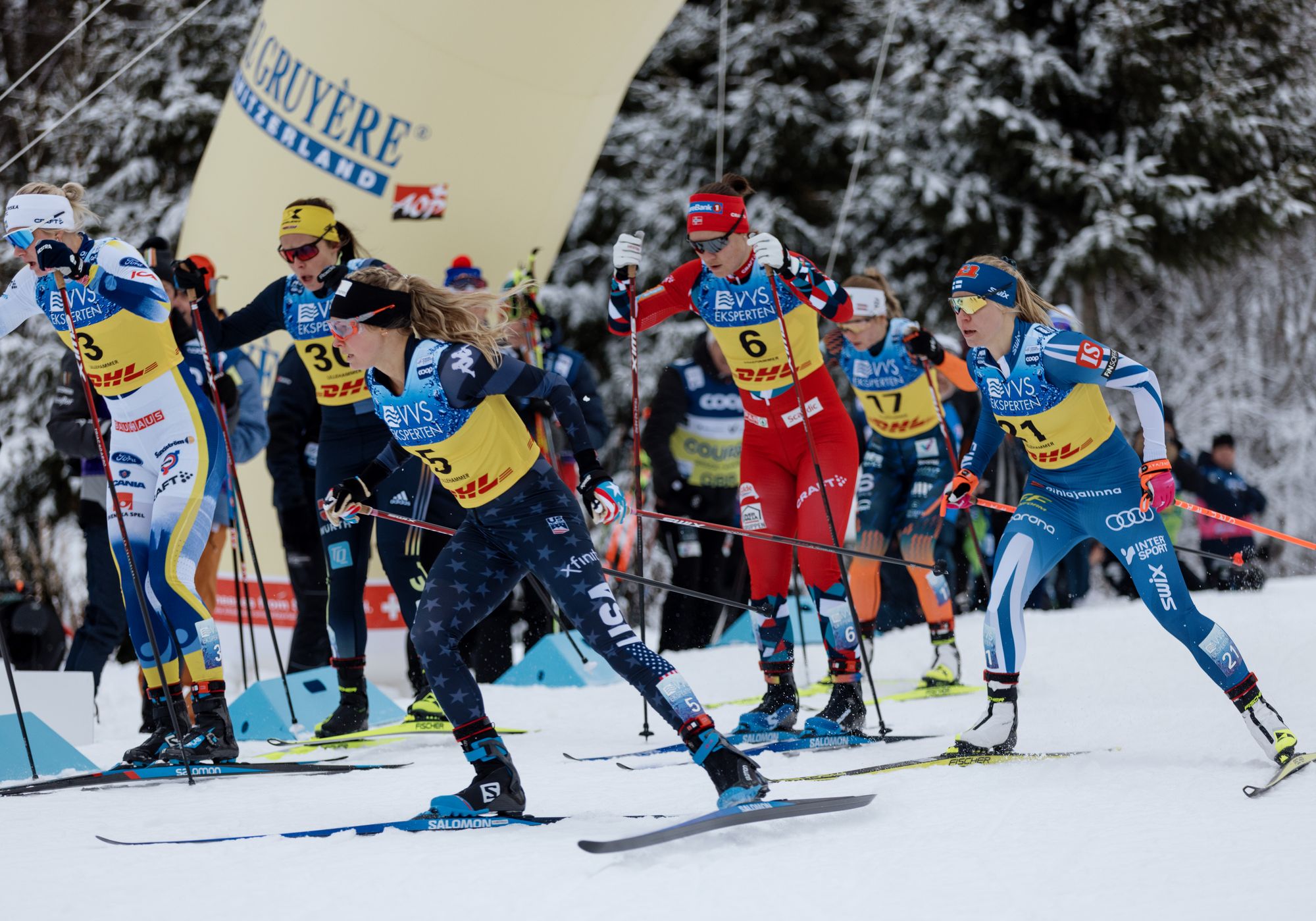
Maybe the first: being exposed to her sport before she could even form memories. Jessie’s first tracks came before she could walk, riding in her mom or dad’s backpack as they skied the parks near their Afton, Minnesota home just across the Saint Croix River from Wisconsin.
When Jessie was old enough, the family joined the Minnesota Youth Ski League and hit the trails every weekend, every winter. She started skiing for Stillwater High School’s cross-country team in seventh grade and eventually earned an academic scholarship to Northern Michigan University.
By that point, though, she was ready to see how far she could take her skiing. She decided to defer college and go pro instead. It was during this time that a health crisis was brewing.
Toward the end of high school, Jessie sought perfection in every realm — academics, skiing, physique — and that led to taking hyper control of what she could. Food was one of those things.
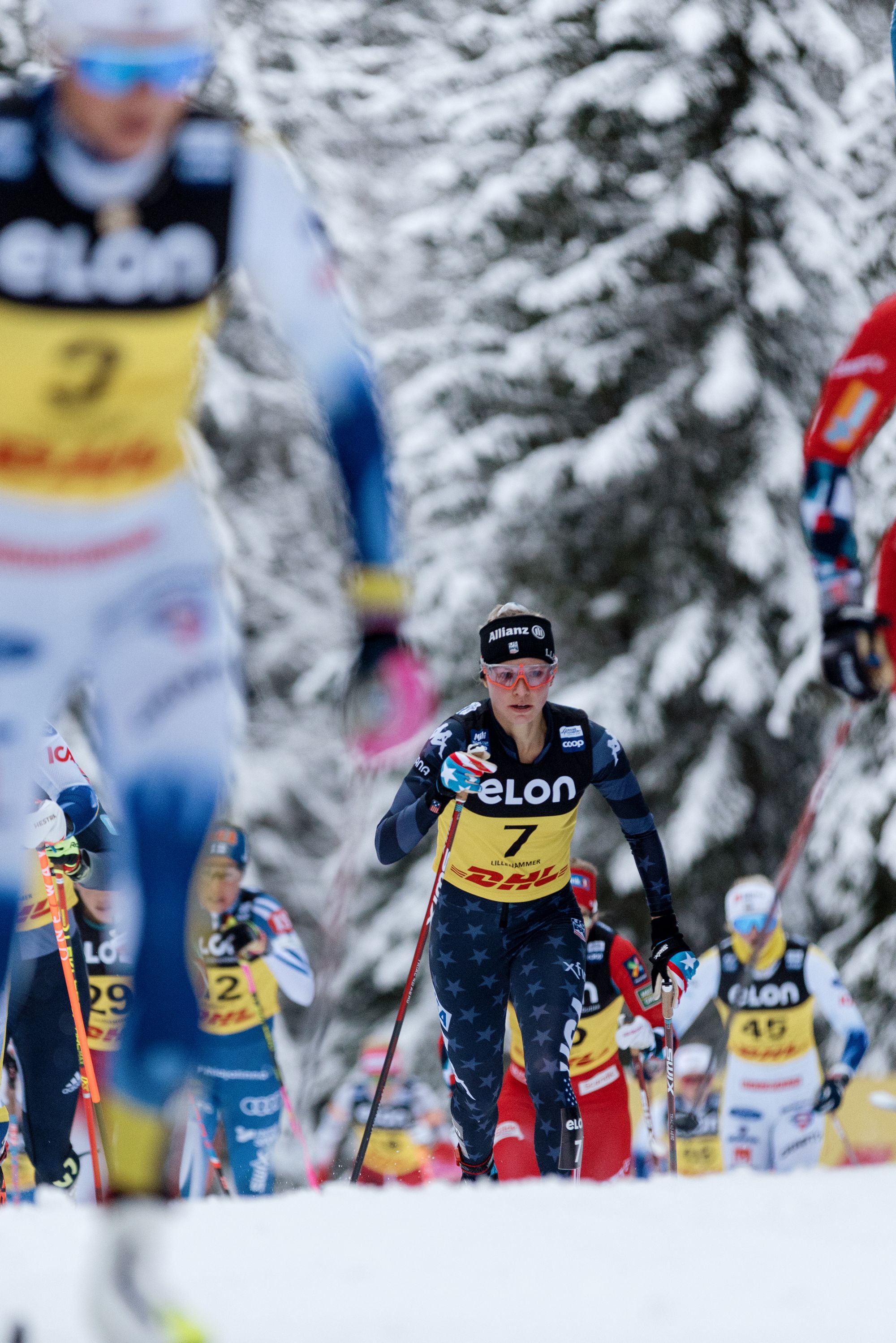
“I was starting to label foods as good, bad, healthy, unhealthy, and attaching emotions and values to food in a very unhealthy way, beyond ‘What am I craving? What do I need?’”
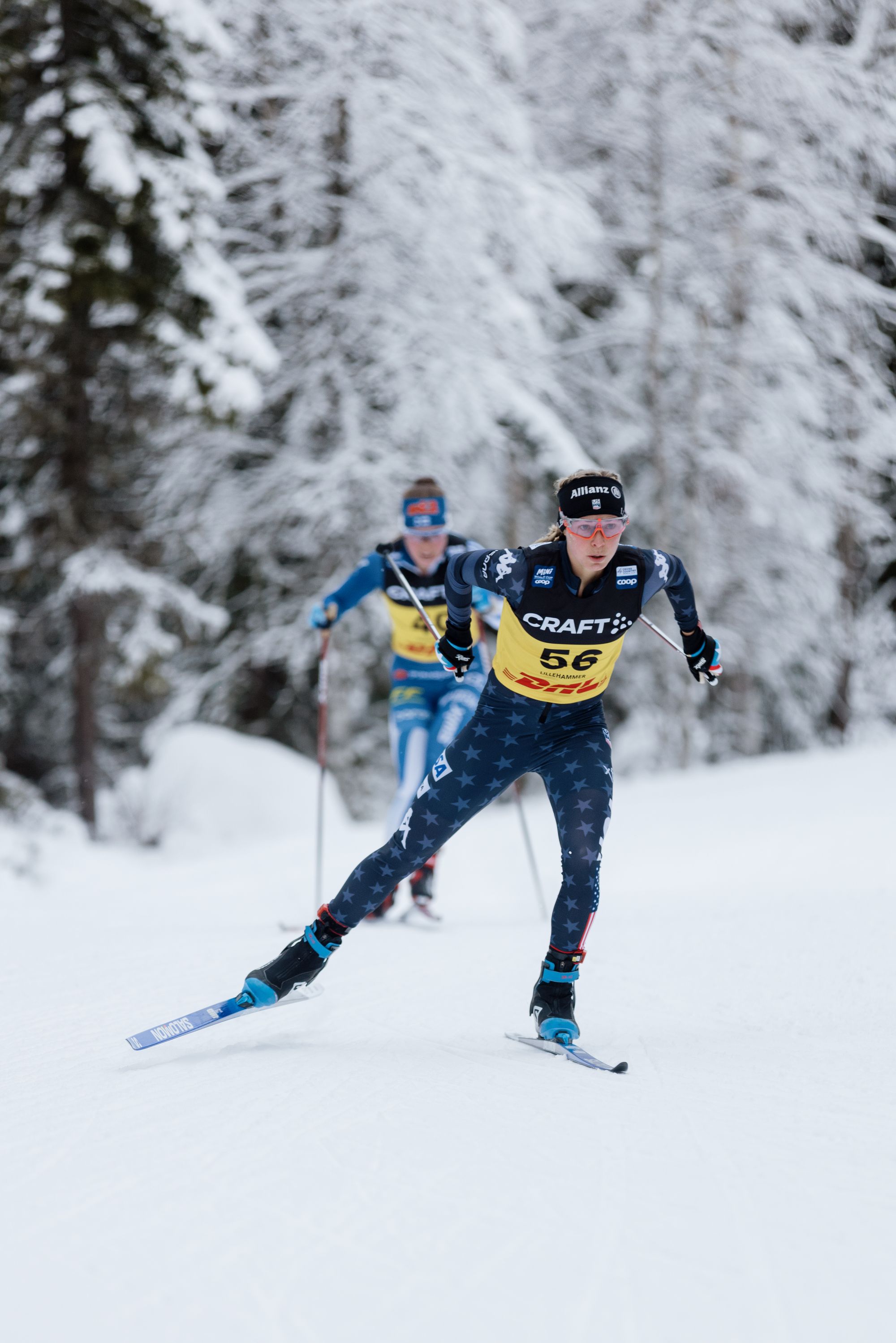
That thinking became so normal that at first, Jessie didn’t see the harm of, say, refusing to eat a white hamburger bun at a picnic. But things spiraled quickly. Right after she graduated high school in 2010, she started making herself throw up, a dangerous eating disorder called bulimia.
“You feel like you can’t live with the food in you, so you get rid of it,” she says.
She recognized it then as “weird,” and she was ashamed and embarrassed, but she rationalized. I’m a good kid. I get straight A’s, I can figure this out. Her parents and younger sister began to see signs. A big one: Jessie’s absence at family dinner, a daily staple in the Diggins dining room.
Deb and Clay Diggins worried that their daughter wasn’t getting the fuel she needed to power her heart, let alone her intense training. In addition to malnutrition, bulimia can cause dehydration, which affects the bloodstream’s levels of salt, potassium and other electrolytes—all critical to normal cardiac rhythms and kidney function.
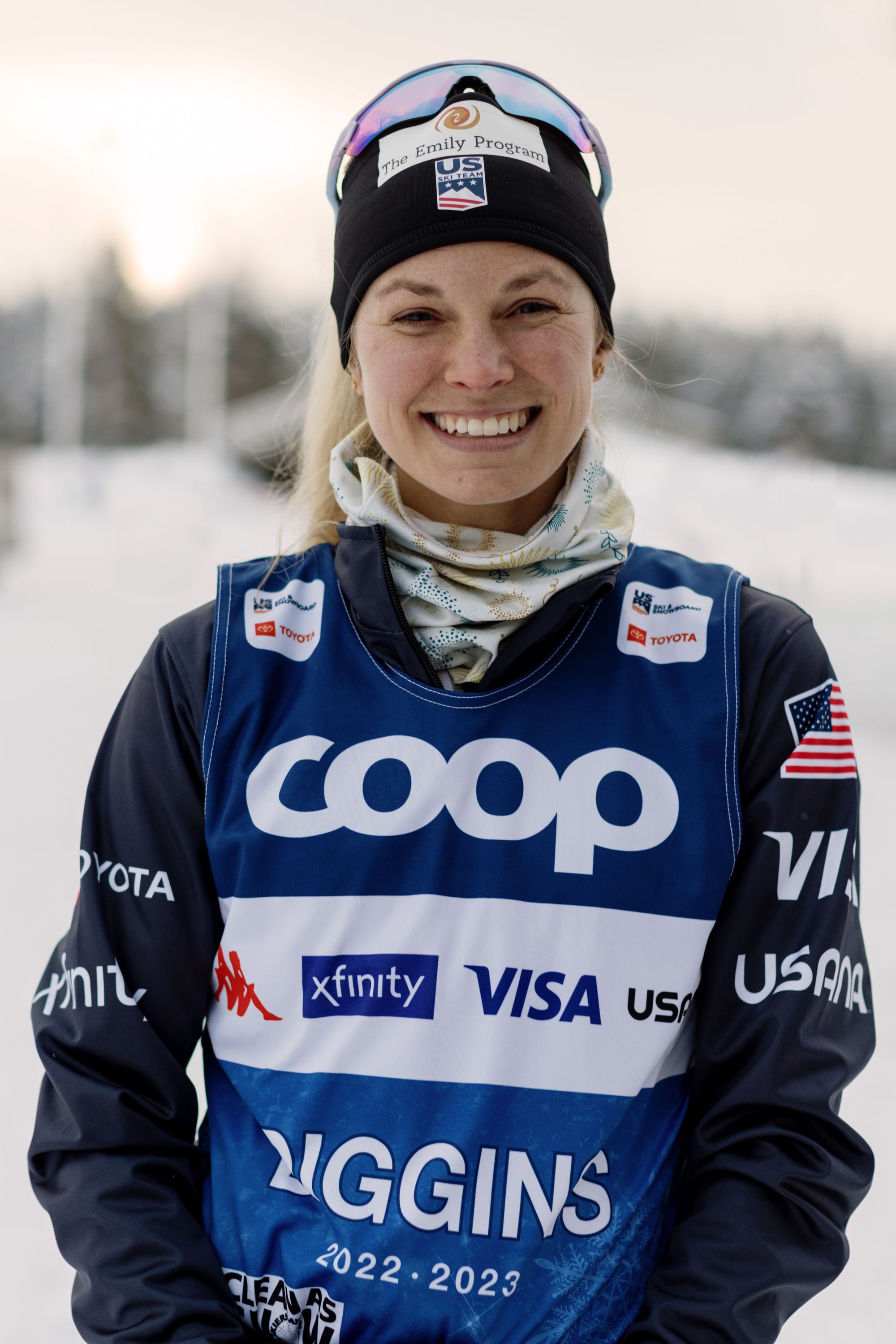
Jessie’s parents urged her to get professional help, and eventually, she did. A Twin Cities offering called The Emily Program provided intensive outpatient treatment that helped her reach recovery and understand disordered eating as a mental illness, not a behavioral shortcoming. The phrase that made it clear for her: “Genetics loads the gun, environment pulls the trigger.”
“It was always something that was going to be there. I’m super Type A, very driven with an intense personality, coupled with endurance athletics, coupled with the pressure of going pro. It’s easy to understand.”
A few months after her gold medal race, she posed in ESPN The Magazine’s The Body issue and revealed her eating disorder in a blog on her website. The medal and attention afforded her a platform to share and, she hopes, help others who may be struggling know they’re not alone.
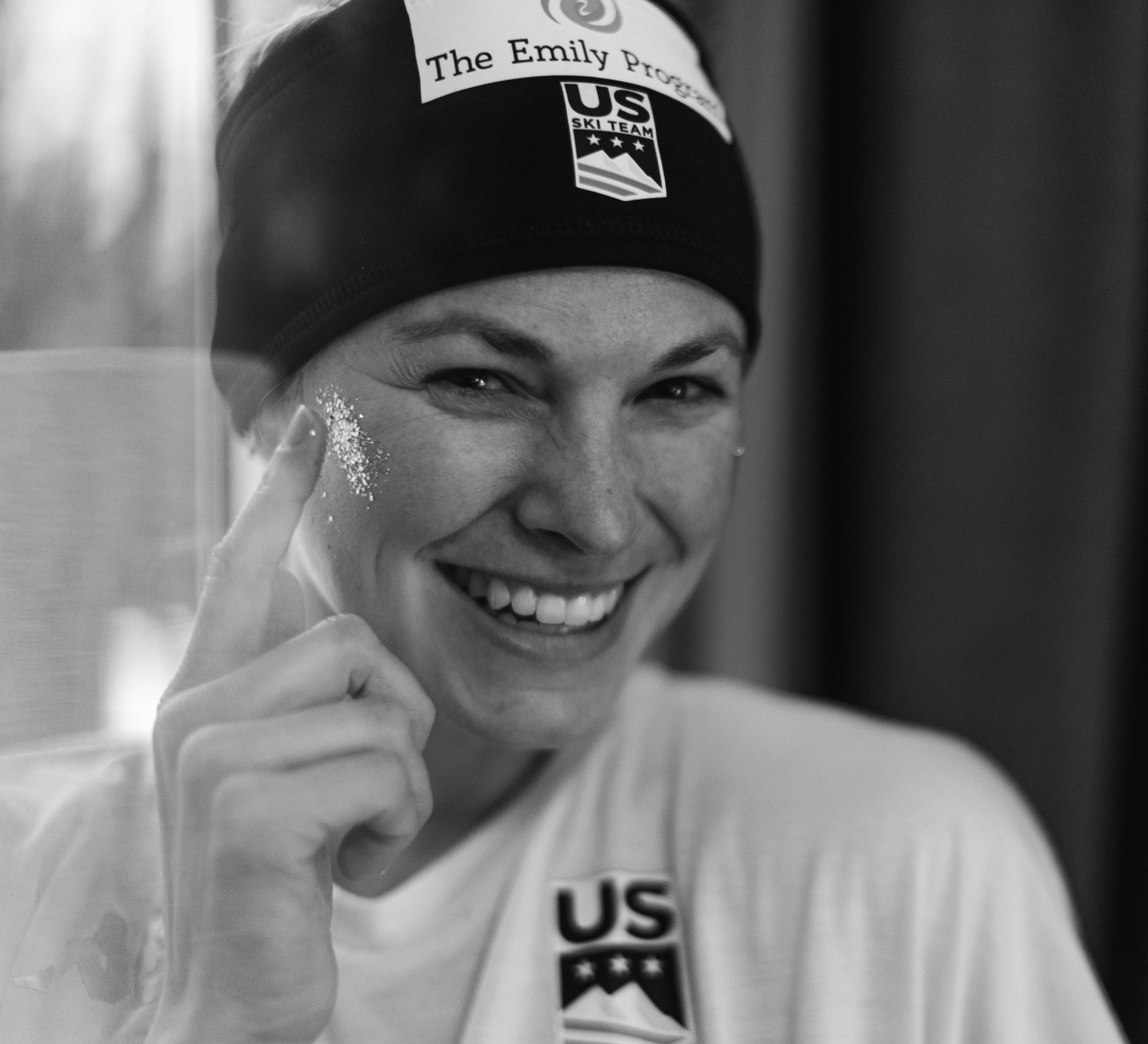
“We need to open up the conversation about body image, self confidence, and disordered eating,” she wrote. “It should not be a shameful thing, or a taboo topic. It’s more prevalent than people think, and perhaps making help easier to find and less difficult to ask for could save some lives.”
Amid the pressure and uncertainty of going pro, food was one thing she could control. That dynamic still exists, of course. She’s still Type A, still driven and still faces pressure as a professional athlete on her sport’s biggest stage.
Eating disorders are not so different from substance use disorders in that relapse is always possible.
“I’m in recovery and in a good place, and I don’t want to take it for granted. Certain situations may be more triggering than others. Around the Olympics, there’s massive pressure. I’m in a spandex uniform. Everyone can see what my body looks like. There’s pressure to medal.”
Regular sessions with a sports psychologist have helped her learn how to anticipate and manage those triggers.
“Every time you meet and work on things, you’re weaving this safety net that maybe you never need, but if you do fall and need that net, it’s there.”
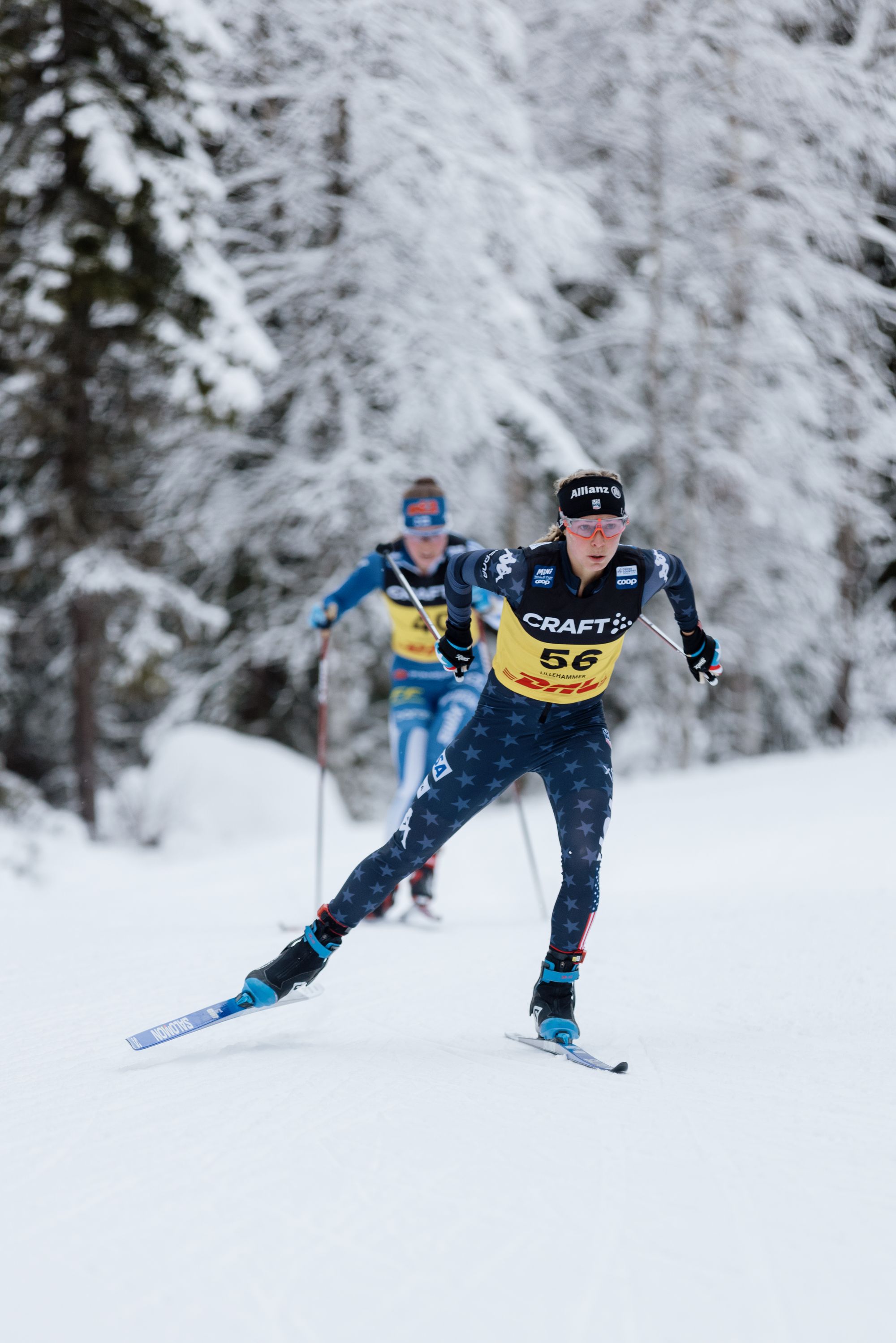
What’s the net made of? It’s a mix of distractions, actions and people. A distraction: Netflix. “Vampire Diaries” and “Outlander” let her detach.
Action: Filtering what she sees on Instagram. She restricts accounts that might be harmful for her and follows athletes of all shapes and sizes, along with accounts of puppies and cats “doing dumb things.”
People: Her husband, family and teammates. They’re always there for her, but sometimes she needs them there with her — and that’s not always easy during high-stakes events where logistics are strict and pre-race mingling difficult. During the 2022 Beijing Games, Jessie knew it would be vital for her to see her boyfriend (now husband) and parents before racing and was able to arrange it.
“It was grounding and affirming that they loved me no matter how the race went.”
Her races went very well — she won silver in the women’s 30 km mass start free and bronze in the women’s sprint free.
Just like one action led to another and another and a medal and more medals, the same can be true in addressing climate change. What started out for Jessie as a sense of powerlessness — “What can little old me do?” — has turned into a mix of both individual action and larger-scale advocacy through Protect Our Winters.
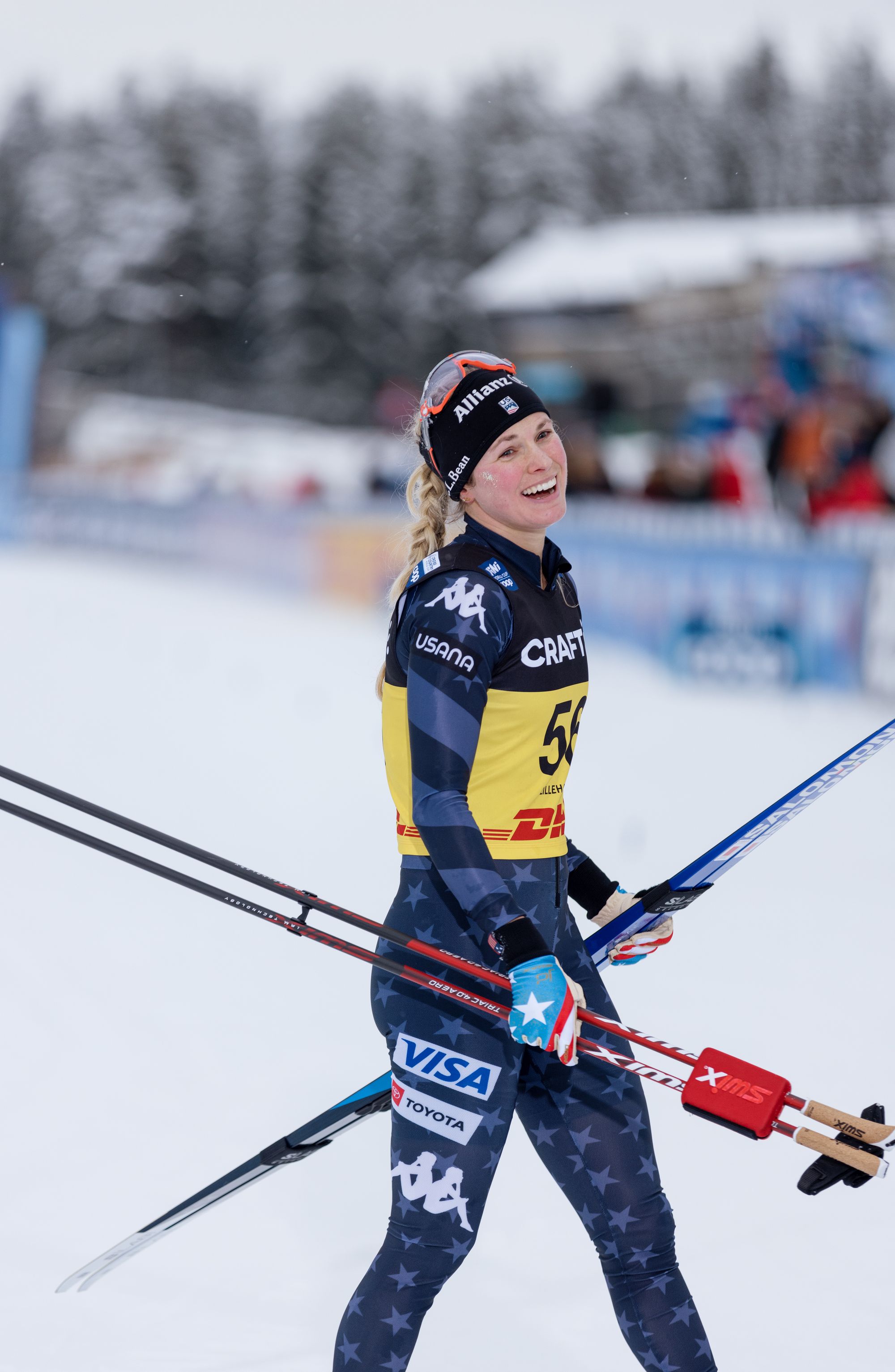
Launched by pro snowboarder Jeremy Jones, Protect Our Winters works to mobilize the snowsport community to educate the public and lawmakers on how and why we must solve the climate crisis.
Jessie knew that warming was a problem and a threat well beyond her sport, but it seemed too big to tackle in a meaningful way. It wasn’t until she got involved with the organization that she learned how to talk about climate and accept imperfect advocacy.

“You don’t have to know every stat to care,” she says. She joined Protect Our Winters’ board, a role she says got her out of her comfort zone but makes productive use of her platform. In the spring of 2022, she met with the Republican Climate Solutions Caucus, where she gave a speech and shared her climate story and made cheesy sports analogies.
“I left optimistic that we all know we need to do something. The exact bills and policies … we’ll need to do some compromises, but the idea that we need to do something is in place. That’s progress.
“(The work) is fulfilling and also very empowering, like I’m working to spread the message and model this in my own life. If we can marry personal actions with large-scale policy changes, that will move the needle.”
Some have questioned her commitment. If she truly cared about climate, wouldn’t she retire and avoid traveling around the world in a plane for races?
“That’s true. Or I could advocate for a future where we use more efficient fuels. We all need to travel to funerals and weddings, for work, family, pleasure, so I’d rather advocate for a future where that’s possible.”
As for the immediate future, she’s looking ahead to the upcoming World Cup season.
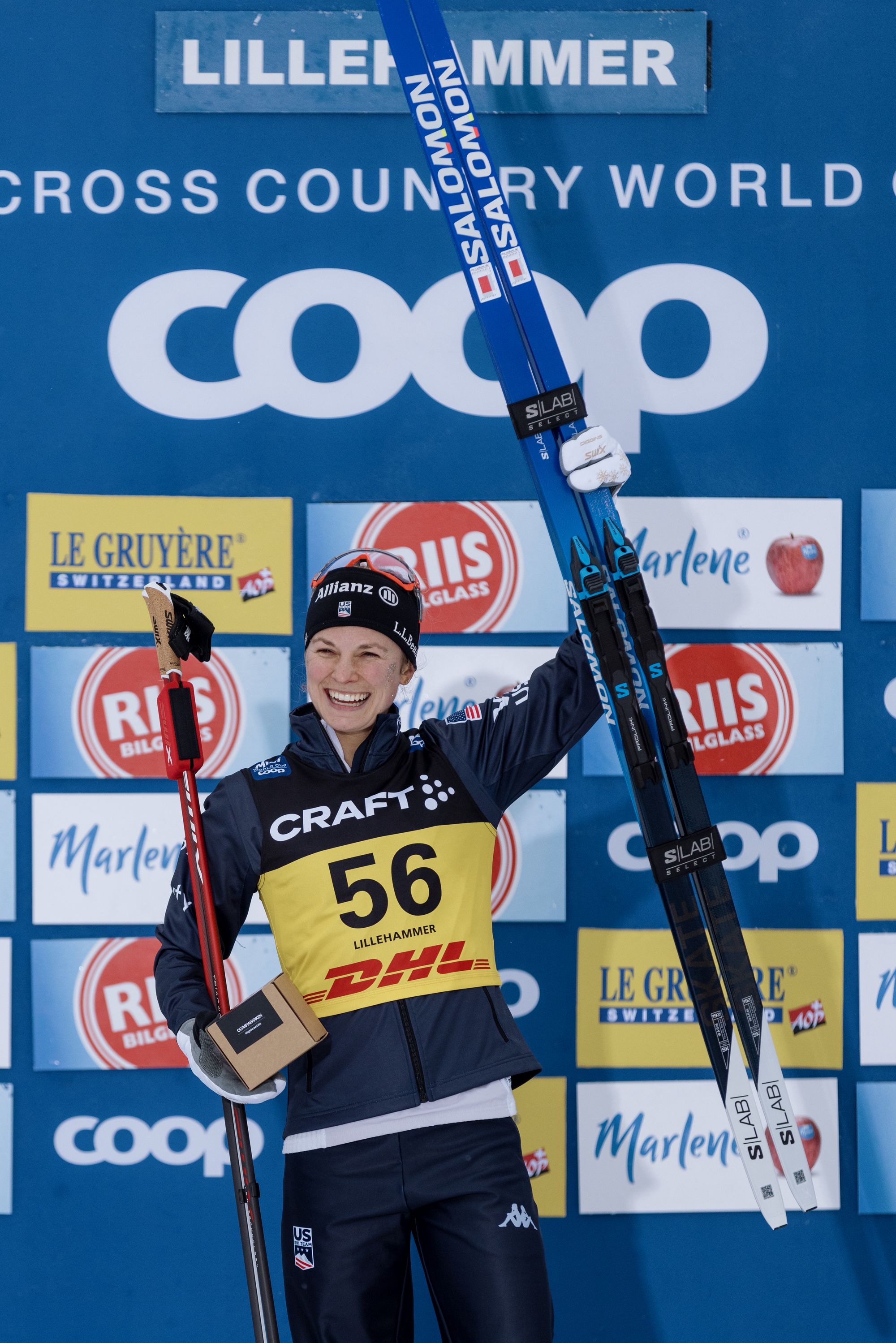
Yes, she’s won Olympic gold, silver and bronze. She is the 2023 World Champion and the 2021 overall World Cup Champion.
And with 14 individual World Cup victories, she is the most decorated American cross-country skier ever. What’s left to achieve?
“I feel like I’d be lying if I said that trying to become the best all-time U.S. cross-country skier wasn’t appealing. Of course, there’s that. But I think mostly I’ve been driven by, I want to fulfill my potential. That’s why I’m still going.
“I could be like, I’ve checked the box, and we’re out. Instead, I’m sweating my face off out in the woods after crazy floods because I still think there’s part of my potential that I haven’t reached yet. And I’m intensely curious what that will look like, what that will feel like. What will it feel like when I finally put together my classic technique? That’s what drives me. That and the idea of giving back. I’m intensely motivated by the idea of giving back.”
She’ll get a chance to do both Feb. 17–19, when the World Cup comes to Minneapolis as part of the 2024 Loppet Cup. It will be the first time in 20 years that the U.S. has hosted a World Cup, and the first time in 10 years that Jessie will be back home in the middle of winter.
It’s been a long time coming, thanks in part to the work of the Share Winter Foundation, another organization Jessie supports and volunteers for to help expose kids and families to winter sports.
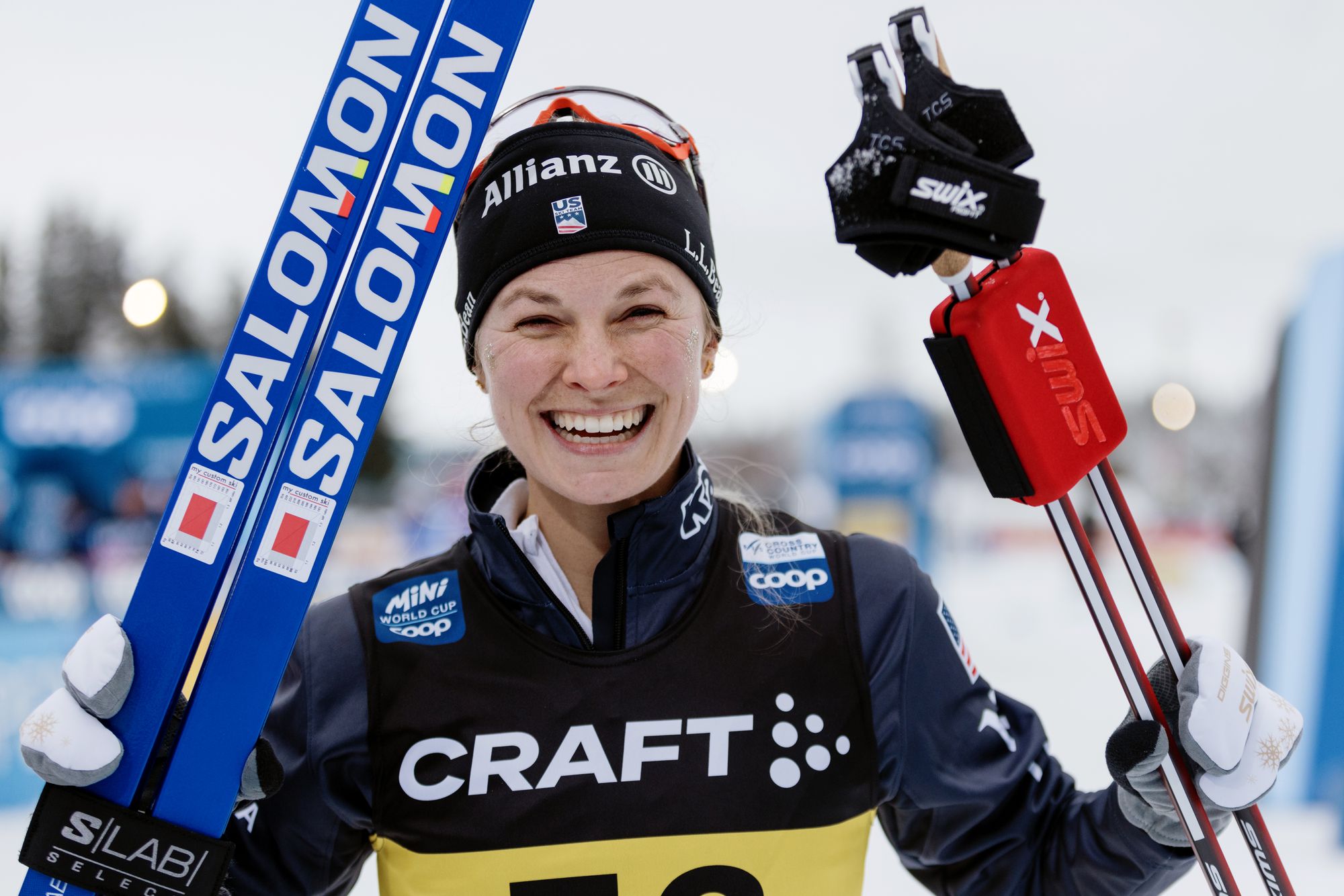
“I’ve been trying to make it happen since three days after that gold medal. I want everyone to come. It’s an opportunity to give back to the community that raised me and for all these kids and families to be able to see their heroes and the greatest athletes in the sport race in front of them.”
The full-circle beauty of it all is not lost on her. She is who she is and has done what she’s done because of all kinds of actions — hers and others’ — that started right there in Minnesota. Now, in addition to helping bring the World Cup home, she gets to help inspire the next generation to take actions of their own.
“When I was younger, I heard that being a professional athlete is very selfish. It is if you make it. I feel like I’ve benefited so much from the women and men who have come before me, inspired me. I’ve seen them give back the good things they’ve done when they retire. I want to leave this sport better than I found it.”